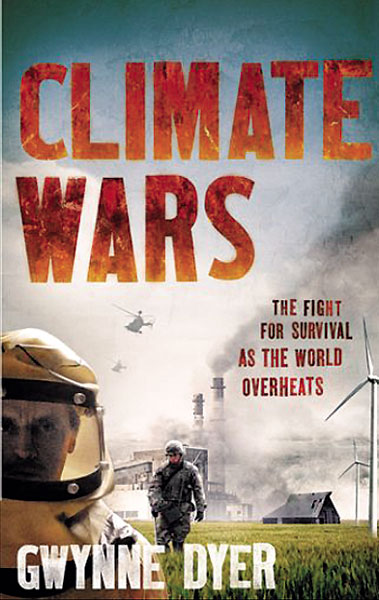

| Visitors Now: | |
| Total Visits: | |
| Total Stories: |

| Story Views | |
| Now: | |
| Last Hour: | |
| Last 24 Hours: | |
| Total: | |
NY Times Dialogue on Human Violence Omits Climate Change
First published on ClimateProgress.org, a project of the Center for American Progress Action Fund, which was recently named one of Time magazine’s Top 25 blogs of 2010.
by Felix Kramer
 Last week, the New York Times published a provocative letter in its weekly “Invitation to a Dialogue,” and, as usual, invited comments to be published in its Sunday Review.
Last week, the New York Times published a provocative letter in its weekly “Invitation to a Dialogue,” and, as usual, invited comments to be published in its Sunday Review.
The letter, by Robert J. Lifton, critiqued popular Harvard Professor Steven Pinker’s recent book, The Better Angels of Our Nature. Lifton, a renowned psychologist who has written about the human responses to the Holocaust, Hiroshima and Vietnam, questioned Pinker’s optimism that the world is getting less violent. His opinions were compelling, concluding:
There is a terrible paradox here. Dr. Pinker and others may be quite right in claiming that for most people alive today, life is less violent than it has been in previous centuries. But never have human beings been in as much danger of destroying ourselves collectively, of endangering the future of our species.
We are not helpless about our fate. There could not be a more crucial moment to draw upon our gradual taming of individual violence, along with our growing awareness of the grotesque consequences of numbed technological violence, to achieve lasting forms of what can be called peace.
I was worried that no one would take discussion to an even broader level, in the context of the violent world we are steadily creating, and the warning signs the world is ignoring. His letter sent me to the book, which, although erudite and compelling, includes within its 696 pages only four dismissive paragraphs (pp. 375-377) on whether climate change could threaten international security.
Pinker looks only at the potential for armed conflict among poor countries for resources, and concludes, “maybe so, maybe not.” That compelled me to send in a response to the piece:
Robert Jay Lifton is right to redefine violence and peace. Corporations and governments collaborating in plunder will make our planet increasingly unlivable, unleashing violence on an unimaginable scale. Business-as-usual treats our atmosphere as a garbage dump, altering our climate and disrupting nature. Within our lifetimes, warming will spread epidemics and diseases to insects, birds, and animals, and through them slaughtering countless people. Extreme weather, from dust storms to floods, will spark desperate responses…. Instead of reassurances about human progress, we need wake up calls to avert species suicide.
I perfectly understand that my submission — surely one of hundreds or thousands the Times received — was not accepted. But I was shocked that in the responses that were published, the subject of global climate change’s impact never came up!
Lifton’s response to these letters never mentioned the environment, but he at least pointed to the power relationships that impede change:
I’m also in full agreement with Dr. Pinker and the other letter writers about our capacity to take constructive steps to diminish the dangers we face. Indeed, much protest over the years has sought to do that, whether as 1960s and 1980s opposition to war and weaponry or today’s Occupy movement. We would do well to channel more of this protest into combating all violence, but especially the numbed technological variety.
Pinker’s point of view was welcomed by a few deniers. The only other critique I’ve seen was in the Times Book Review last October by bioethicist Peter Singer, “Is Violence History?” which concluded fittingly:
If he had been able to see, before his book went to press, a study published in Nature as recently as August of this year, he might have been less sanguine about maintaining peace despite widespread climate change. Solomon Hsiang and colleagues at Columbia University used data from the past half-century to show that in tropical regions, the risk of a new civil conflict doubles during El Nino years (when temperatures are hotter than usual and there is less rainfall). If that finding is correct, then a warming world could mean the end of the relatively peaceful era in which we are now living.
I guess this is one more time when the editors at The Times made their selections with blinders on.
Felix Kramer is a fierce climate hawk and founder of the California Cars Initiative.
Related Post:
Source:


